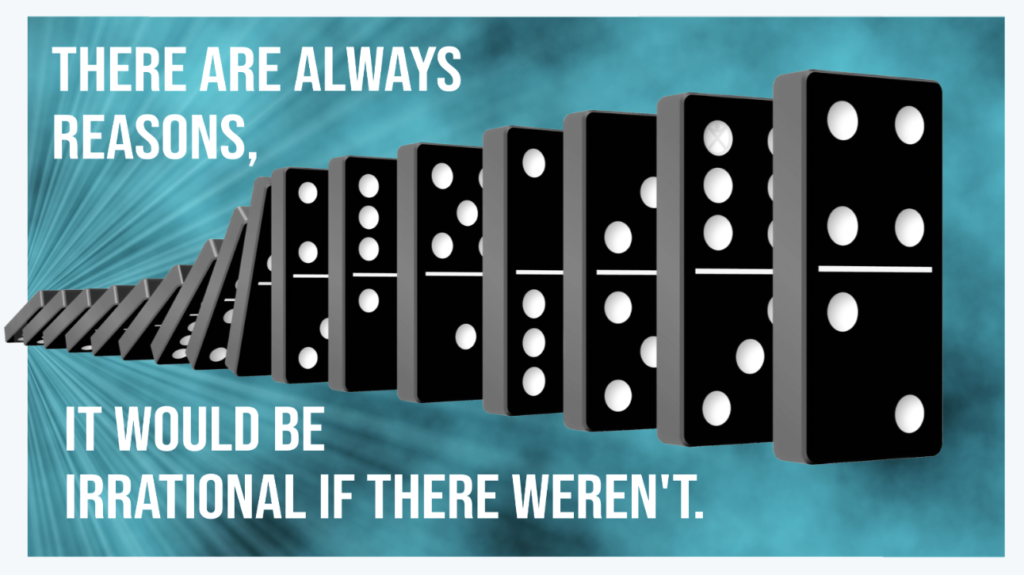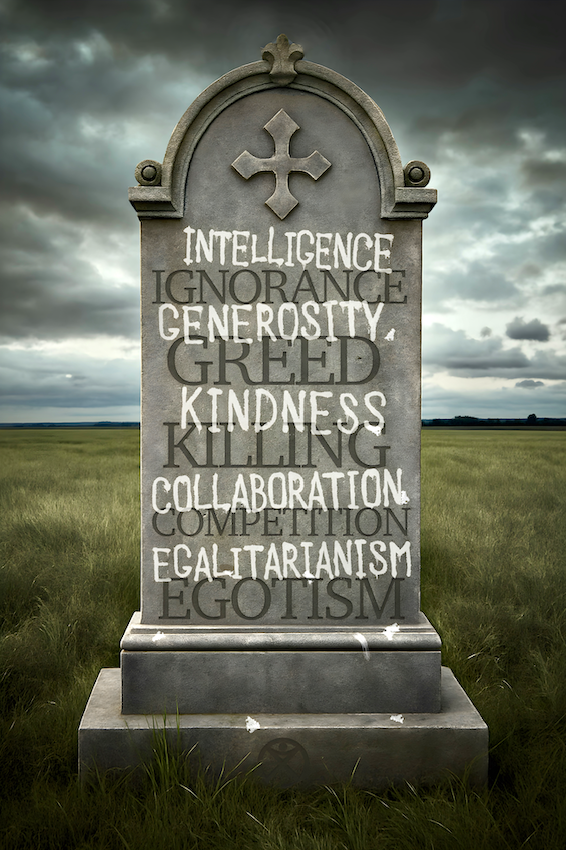the solution
As conscious beings, we are a remarkable complement to the rich diversity of life on Earth, much like this planet is to the universe. However, we cannot take credit for this position, as we played no part in our own evolution. What we ought to take responsibility for is how we use this exceptional position. So far, our legacy is one of shameful cruelty and destruction. While we may point to our technological achievements as proof of our brilliance, in reality, these advancements have only accelerated the damage we’ve caused, suggesting that we are far from brilliant. True brilliance would be using our evolved intelligence to further nature’s journey, rather than exploiting the planet and each other to the brink of self-annihilation.
We are at this critical point because we have been conditioned to be selfish, egotistical, and indulgent. Although our highly evolved brains have the capacity for compassion, long-term thinking, empathy, generosity, reason, and altruism, these ‘higher’ attributes must be learnt. In contrast, greed, violence, and selfishness are instinctual behaviours, easily triggered if we fail to nurture those higher potentials. The evolution of our neocortex and frontal lobe was meant to give us an advantage over the primitive limbic system, yet in a world that prioritises competition and greed, those more nuanced qualities remain suppressed. When conflict is the preferred method for solving disputes, and greed is celebrated, the parts of our brain responsible for higher reasoning become assimilated by primitive impulses. This is why religions, and other systems of control, focus on hijacking young minds, because those formative years are the most influential. As Aristotle said, “Give me a child until he is seven, and I will show you the man.” Hitler echoed this in a more sinister way, “He alone who owns the youth, gains the future.” Both quotes demonstrate the power of early programming (education).

Everything that happens in the universe – including our actions and decisions – is the result of prior causes and conditions. While it may feel as though we are making free choices, those choices are shaped entirely by factors beyond our control: genetics, upbringing, experiences, and environment. If our actions weren’t determined by these conditions, they wouldn’t be free – they would be random. But our decisions are not random; they’re caused. And if they’re caused, they’re not freely chosen. There are always reasons behind what we do, even if we’re unaware of them.
That’s why it’s vital to reconfigure our motivations, education, and social influences, so they reflect a broader, collective perspective. Without such a shift, one aligned with the long-term survival of humanity, we remain at the mercy of a system we never actually chose.

We lack the autonomy (free-will), to simply decide to be better; we are products of what we have been shaped into. We cannot choose to be different, even when it is absolutely necessary, as it is now.
To change, we must recognise this reality and begin reprogramming ourselves away from the destructive agendas of corporate interests, and instead let the very experience of life be the inspiration of our thoughts and actions. It’s about developing those higher brain functions, allowing us to explore the full potential of reason, compassion, language, empathy, altruism, and imagination. But this can only be achieved by a change of system, one that also reflects those aspirations.
No more religious dogma and suppression, no more celebration of violence and competition, no more manipulation into viewing self-indulgence and over-consumption as the meaning of life. These crude forms of control keep us primitive in both thought and behaviour.
While we, as individuals, are routinely burdened with guilt over environmental destruction and social decay – told to recycle, drive less, fly less, consume less – it’s the corporations and the political systems that are responsible for creating those very conditions that we’re told to clean up. These systems profit from excess, yet place responsibility for the consequences squarely on us. This is known as externalising cost: when industries offload the social, environmental, or human damage of their practices onto others. Whether it’s pollution dumped into rivers, plastic packaging that floods our homes, the human toll of cheap labour, or the suffering caused by war, the true price is paid not by those who profit, but by those with the least power to protest.
Until we reject this system, no amount of individual sacrifice will reverse our trajectory. The problem is structural – and so must be the solution.
The system that taught us to take more than we need now threatens everything we have – including our future.
We won’t solve this crisis with green tech, new leaders, or lifestyle tweaks, nor by placards, campaigns, or recycling. These are superficial attempts to remedy a much deeper sickness. A system built on hierarchy, ego, exploitation, and greed, cannot produce peace, justice, or sustainability. It keeps us primitive on purpose – rewarding selfishness, glorifying violence, dividing us by abstract identities, and distracting us with irrational beliefs, such that we are now the cause of our own extinction.
If we are to have a future, we must reclaim our humanity and reflect what nature intended us to be. Rather than take our lead from those who serve the system’s agenda, we should refer to the sum of our extensive knowledge and let that be our guide.
